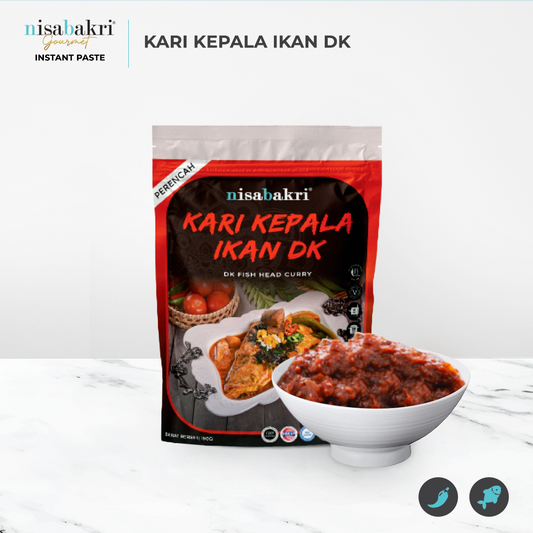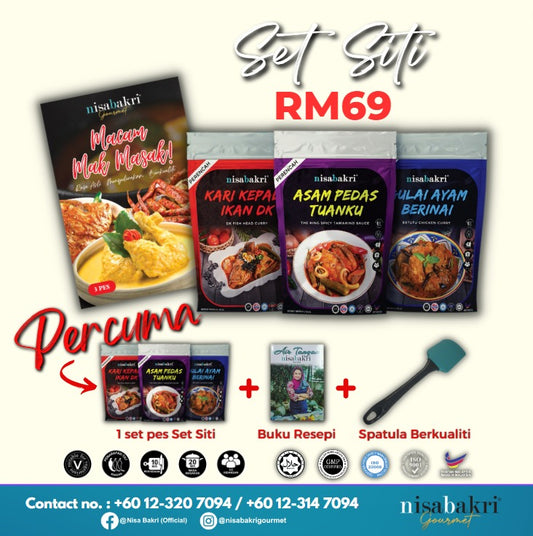Making curry paste is a process that involves blending various spices and herbs to create a flavorful and aromatic base for curry dishes. You can adjust the ingredients and spice levels to suit your taste preferences by making your curry paste. You can also experiment with different herbs and spices to create unique and complex flavors.

What is Curry Paste?
Curry paste is a blend of various spices and herbs used as a base for many curry dishes. The Paste is often mixed with coconut milk or other liquids to create a flavorful sauce for vegetables, meat, or seafood. Curry paste can be purchased pre-made at grocery stores or home using fresh ingredients.
How to prepare the ingredients before making Curry Paste?
The preparation of ingredients for making curry paste can vary depending on the specific. For making Curry Paste:
-
Wash and dry all fresh herbs, spices, and vegetables before using them.
-
Remove any stems, leaves, or seeds that are not needed.
-
Peel and chop any vegetables, such as onions, garlic, ginger, or lemongrass, into smaller pieces to make them easier to grind.
-
Toast whole spices, such as cumin or coriander seeds, in a dry skillet over medium heat until they become fragrant. This will enhance their flavor.
-
Soak any dried chilies or spices, such as dried shrimp paste, in hot water for 10-15 minutes to soften them before grinding.
-
Drain any excess liquid from the soaked chilies or spices before grinding them into a paste.
-
Combine all ingredients in a food processor or mortar and pestle, and grind them into a smooth paste. You may need to add some liquid, such as oil or water, to help the grinding process.
-
Store any leftover curry paste in an airtight container in the refrigerator or freezer for future use.
-
It is important to note that preparing curry paste can be time-consuming, but the result is a flavorful, aromatic paste that can be used as a base for many dishes.
What are the Steps to Make Curry Paste?
Here are the general steps to make curry paste:
Ingredients:
|
10-12 dried red chili peppers
|
|
1 tbsp coriander seeds
|
|
1 tsp cumin seeds
|
|
1 tsp black peppercorns
|
|
4-5 shallots, peeled and roughly chopped
|
|
4-5 garlic cloves, peeled and roughly chopped
|
|
1-inch piece of ginger peeled and roughly chopped
|
|
One stalk of lemongrass, tough outer layers removed and chopped
|
|
1 tsp shrimp paste (optional)
|
|
1 tsp salt
|
|
1 tbsp vegetable oil
|
Instructions:
-
Begin by soaking the dried chili peppers in hot water for 10-15 minutes until soft. Once they are soft, remove the seeds and roughly chop them.
-
In a dry skillet over medium heat, toast the coriander seeds, cumin seeds, and black peppercorns until they become fragrant. This will take 1-2 minutes. Remove from heat and let cool.
-
Grind the toasted spices in a food processor or mortar and pestle until they are finely ground.
-
Add the soaked chili peppers, shallots, garlic, ginger, lemongrass, shrimp paste (if used), and salt to the food processor, mortar, and pestle. Grind the ingredients together until they form a smooth paste.
-
Add the vegetable oil and mix well.
-
The curry paste is now ready. You can store any leftover paste in an airtight container in the refrigerator for up to a week or in the freezer for up to 3 months.
How to store freshly made Curry Paste for longer?
To store freshly made curry paste for longer, follow these two ways:
Refrigeration:
Store the curry paste in an airtight container in the refrigerator for up to two weeks. Ensure you use a clean utensil every time you scoop out the Paste to prevent contamination.
Freezing:
Portion the Curry paste into small airtight containers or freezer bags and freeze them for up to three months. Before freezing, flatten the Paste out in the container or bag to make it easier to thaw later. Then, when you want to use the frozen Paste, simply thaw it in the refrigerator or at room temperature, and use it as needed.
When storing curry paste, it's important to note that the Paste may darken over time, and the flavor may change slightly. If you notice any mold or other signs of spoilage, discard the Paste immediately.
Conclusion:
Curry paste is a flavorful ingredient that can offer a range of potential health benefits. It contains spices such as turmeric, ginger, and chili peppers, known for their anti-inflammatory properties. These ingredients may help reduce inflammation in the body, which is linked to various health problems.
In addition, curry paste ingredients such as ginger and lemongrass may help to improve digestion and reduce symptoms such as nausea. It can add a delicious and complex flavor to a range of dishes, making adding variety and interest to your meals easier. If you want to purchase the best Curry paste, you can visit nisabakrigourmet.
FAQS:
1. How long can homemade curry paste be stored?
The storage time for homemade curry paste can vary depending on the specific ingredients used and how the Paste is stored. Generally, homemade curry paste can be stored in an airtight container in the refrigerator for up to 1-2 weeks.
2. Can I adjust the spiciness level of the curry paste?
You can adjust the spiciness level of the curry paste to suit your taste preferences. But remember that changing the spiciness level of the curry paste can affect the overall flavor profile of the dish you are making.
3. Are there any vegetarian alternatives to fish sauce in curry paste?
There are vegetarian alternatives to the fish sauce that you can use in curry paste. Fish sauce is a common ingredient in many Southeast Asian cuisines, including Thai and Vietnamese, and it adds a unique umami flavor to dishes.
4. Can I use a mortar and pestle instead of a blender to make Curry paste?
You can use a mortar and pestle to make curry paste instead of a blender. Using a mortar and pestle is the traditional way of making curry paste in many Southeast Asian countries.
 Uitverkocht
Uitverkocht


